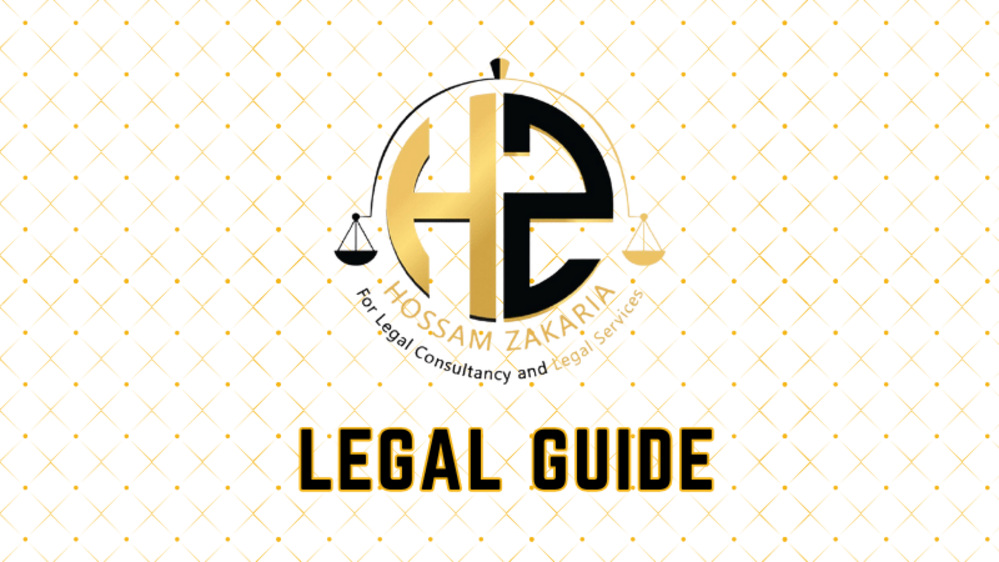Introduction: The Evolution of Legal Accountability in GCC AI Governance
The rapid evolution of artificial intelligence (AI) is remapping regulatory landscapes across the globe. In the GCC, Qatar’s proactive approach to AI governance stands as a regional benchmark—compelling the UAE to accelerate legislative innovation. With the UAE’s projected law updates for 2025, particularly in the realms of federal data protection, cybercrime prevention, and automated decision-making standards, this subject is crucial for business leaders, compliance officers, HR executives, and legal advisors navigating cutting-edge compliance risks and opportunities.
This article provides an in-depth consultancy analysis on AI governance frameworks, focusing on the legal strides taken by Qatar and translating these lessons into actionable insights and compliance guidance for the UAE market in preparation for law updates anticipated in 2025. It examines new federal decrees, implementation strategies, practical risks, and tailored recommendations to ensure your organization is equipped—not just to comply, but to lead—in an AI-empowered era.
Table of Contents
- Overview of AI Governance Trends in the GCC
- Qatar’s Legal Framework for AI Governance: An Analytical Review
- Comparative Analysis: Qatar AI Law and the Current UAE Regulatory Landscape
- Key Lessons for UAE Law 2025 Updates
- Risks and Implications of Non-Compliance: What UAE Businesses Must Know
- Compliance Strategies: Practical Guidance for UAE Organizations
- Case Studies and Application Scenarios
- Critical Insights for Executives, HR, and Compliance Managers
- Conclusion and Forward-Looking Perspectives
Overview of AI Governance Trends in the GCC
Global Context and Regional Adaptation
AI is reshaping every sector. Regulators are tasked with striking a delicate balance—fostering AI-driven innovation while ensuring robust legal accountability and ethical oversight. International trends—from the European Union’s AI Act to evolving US federal guidance—are inspiring the GCC’s response, with the UAE and Qatar charting leadership trajectories. The UAE’s Artificial Intelligence Strategy 2031 and the National Program for Artificial Intelligence (NPAI) exemplify the country’s commitment, yet the nuances of legal accountability, algorithmic transparency, and organizational risk management are rapidly evolving.
The Imperative for Robust Legal Frameworks
Legal frameworks must keep pace with commercial realities. Considerations now extend beyond data protection to encompass algorithmic bias, autonomous systems liability, workforce transformation, and the obligations of organizations procuring or deploying AI-powered technologies. GCC economies, given their diverse, global-facing markets, face acute pressure to implement internationally aligned yet locally tailored legal standards—especially as global supply chains and multinational investments demand legal clarity, predictability, and cross-border assurance.
Qatar’s Legal Framework for AI Governance: An Analytical Review
Overview: The Ethical and Legal Pillars of Qatar’s AI Strategy
Since launching its National AI Strategy (2019)—built on the Qatar National Vision 2030—Qatar has positioned legal accountability and ethical deployment of AI as national priorities. The country’s approach is grounded on three pillars:
- Regulatory Certainty: Ensuring clear standards for AI safety, privacy, and data usage.
- Transparency and Explainability: Embedding auditability and decision traceability in AI systems deployed within critical infrastructure.
- Organizational Accountability: Specifying direct corporate and individual responsibilities regarding AI outputs, reliance, and incident response.
Relevant Laws and Regulations: The Qatari Approach
While Qatar has not yet issued a standalone ‘AI Law’, its legal architecture integrates AI-specific provisions within broader ICT, data, and cybercrime statutes:
- Law No. (13) of 2016 on Personal Data Privacy Protection (PDPPL): This law establishes foundational rights, including lawful basis for data processing by AI, mandatory privacy impact assessments, and enhanced consent requirements for automated decision-making.
- Law No. (14) of 2014 Regulating Cybercrime: Specific provisions cover unauthorized access via AI, algorithmic manipulation, and the use of AI to facilitate cybercrimes—assigning liability even when criminal acts are automated.
- Qatar’s National AI Ethics Framework (2020): While not legally binding, this framework aligns with OECD Principles on AI and complements the legislative scaffold, serving as a compliance benchmark recognized by courts and regulators.
Organizational Obligations under Qatari Law
Organizations in Qatar must ensure that AI systems:
- Are subject to impact assessments pre-deployment
- Include mechanisms for human oversight and contestability of automated decisions
- Provide clear documentation and explainability logs for regulatory or judicial review
- Incorporate incident response plans addressing algorithmic failures or data breaches associated with AI operation
This legal infrastructure offers a robust template from which the UAE can draw powerful lessons.
Comparative Analysis: Qatar AI Law and the Current UAE Regulatory Landscape
| Area | Qatar (2024) | UAE (2024) |
|---|---|---|
| Data Protection | Law No. 13/2016 Mandatory AI impact assessment for personal data |
Federal Decree-Law No. 45/2021 on Personal Data Protection No mandatory AI-specific assessment |
| Cybercrime | Law No. 14/2014 Includes automated crime via AI |
Federal Decree-Law No. 34/2021 AI not always specifically referenced |
| Ethics Guidelines | National AI Ethics Framework (2020) | Principles issued via NPAI, but not yet binding |
| Organizational Liability | Defined for both corporate entities and responsible managers | General provisions under Commercial Companies Law and Data Law; AI liability emerging |
Key Gaps and Opportunities in the UAE
While the UAE has made remarkable progress, including the issuance of Federal Decree-Law No. 45/2021 on Personal Data Protection and Federal Decree-Law No. 34/2021 on combatting rumors and cybercrime, AI-specific accountability and compliance standards are emerging areas. The anticipated UAE law 2025 updates are expected to address these gaps, drawing heavily on the advanced, sector-based, explainability-driven framework demonstrated in Qatar.
Key Lessons for UAE Law 2025 Updates
1. Codifying AI-Specific Impact Assessments
What Qatar Did: By mandating AI/data privacy impact assessments, Qatar created a compliance step that makes AI deployments auditable and transparent at a managerial level.
Expected UAE Update: The UAE is expected to specify AI system impact assessments as a pre-deployment requirement—incorporating risk identification, mitigation planning, and third-party audit trails. This will apply especially to sectors designated as ‘high risk’, such as healthcare, banking, and public administration.
2. Defining Algorithmic Accountability and Human Oversight
What Qatar Did: Qatar’s Ethics Framework requires organizations to maintain the capability for human intervention in AI-driven processes, ensuring that affected individuals can seek human recourse.
Expected UAE Update: The 2025 UAE law update is projected to define ‘meaningful human oversight’, delineate circumstances requiring it, and stipulate internal governance mechanisms for contestability and remediation—particularly in employment decisions and financial transactions.
3. Expanding Legal Definitions of Liability and Organizational Responsibility
What Qatar Did: By extending cybercrime liability to corporate and managerial actors (even for automated actions of AI), Qatari law strengthens deterrence and fosters a culture of compliance.
Expected UAE Update: The UAE is moving to clarify the accountability of Board members, Chief Data Officers, compliance leads, and system architects for AI system failures, privacy violations, or discriminatory outcomes—thereby reinforcing proactive compliance cultures.
Table: Anticipated Shifts in UAE Law 2025 (Compared to Pre-2025 Framework)
| Area | Pre-2025 Framework | Expected 2025 Changes |
|---|---|---|
| AI Impact Assessments | Voluntary, sector-led guidance | Mandatory for high-risk sectors, documented, subject to MOJ inspection |
| Human Oversight | General principles applied | Specific, codified requirements and escalation protocols |
| Organizational Liability | General regulatory risk | Board-level and individual professional liability explicitly defined |
| Ethical Standards | Guidelines (NPAI), not binding | Legal codification + sectoral codes of practice |
Visual Suggestion: Process flow diagram illustrating compliance steps (AI system development → risk assessment → human review → deployment → incident management).
Risks and Implications of Non-Compliance: What UAE Businesses Must Know
Regulatory and Financial Penalties
The UAE, like Qatar, is expected to introduce substantial administrative fines, reputational penalties, and—where egregious harm results—even criminal sanctions for AI governance breaches. Under current laws, Federal Decree-Law No. 34/2021 already enables the Public Prosecutor or relevant authority to suspend IT activity or block services found non-compliant with data or cyber regulations. UAE law 2025 updates are likely to clarify AI-specific penalty tiers, especially where poor algorithmic governance leads to material harm.
| Type of Breach | Current UAE Penalty | Expected 2025 Penalty |
|---|---|---|
| Failure to assess AI risks | General data fine (AED 50,000–500,000) | Sector-dependent, up to AED 2M and license suspension |
| Lack of human oversight | Sanctions under labor or civil law | Board/manager liability; public naming |
| Algorithmic discrimination | Civil claims possible | Direct compensation orders and regulatory censure |
Reputational and Competitive Risks
For UAE-based corporates, the impact of regulatory censure extends well beyond financial costs. Loss of tendering rights, contractual breaches, and exclusion from government or semi-government projects threaten market position. Moreover, non-compliance exposes companies to adverse media attention, damaging both employer branding and customer trust—critical assets in a digital-first business environment.
Compliance Strategies: Practical Guidance for UAE Organizations
1. Establish a Board-Level AI Governance Charter
Empower C-suite, board, and compliance leaders to sign off on an internal AI Governance Charter. This living document should clarify roles, accountability, escalation protocols, and periodic review frameworks tailored to your organization’s AI use cases.
2. Formalize AI Impact Assessment Processes
Develop and maintain formal, documented AI impact assessments covering privacy, cybersecurity, discrimination, and reliability dimensions. Use sector-specific checklists and ensure third-party validation, especially for high-impact deployments.
3. Appoint Accountable Personnel
Nominate accountable executives for AI compliance (e.g., Chief Data Officer, Head of Risk, HR Director) with clearly defined KPIs, continuous training, and Board reporting duties. Embed AI risk within internal audit cycles and annual compliance reviews.
4. Foster a Culture of Explainability and Incident Preparedness
Design processes that guarantee the explainability and contestability of AI-driven decisions. Build robust incident management, reporting, and remediation procedures—aligned with MOJ or sectoral regulator requirements.
5. Engage in Sector-Led Benchmarks and Regulatory Sandboxes
Actively participate in government-driven AI testbeds, sandboxes, and standards working groups to keep ahead of regulatory expectations and benefit from compliance waivers for innovative pilots.
Table: Checklist for AI Governance Readiness (UAE 2025)
| Requirement | Status | Action Needed |
|---|---|---|
| AI Governance Charter adopted | No/Yes | Draft, Board approval |
| Impact assessment conducted | No/Partial/Yes | Undertake, document, review |
| Human oversight protocol in place | No/Partial/Yes | Define authority, train teams |
| Incident management plan | No/Partial/Yes | Develop, test, update |
| Continuous training delivered | No/Yes | Implement schedule |
| External audit scheduled | No/Yes | Engage third party |
Case Studies and Application Scenarios
Case Study 1: Automated Recruitment Systems
Scenario: A UAE-based multinational introduces an AI-powered recruitment platform. Under new 2025 requirements, the company must conduct and document an AI impact assessment, covering risks of algorithmic bias and data privacy. Failure to do so, or inability to explain adverse automated decisions, may expose the company to administrative fines and civil liability under newly amended UAE Labor Law referenced by sectoral MOHRE guidelines.
Case Study 2: AI-Enabled Credit Scoring in Banking
Scenario: A leading local bank deploys AI models for loan risk assessment. Under 2025 UAE law, the bank is obliged to ensure human oversight, notify customers of automated decisions, and provide a manual recourse option. Regulatory audits discover insufficient documentation and inadequate human review, prompting an investigation under the new Central Bank compliance powers—a process analogous to Qatari Central Bank’s review regime.
Case Study 3: Smart Infrastructure and Public Sector Automation
Scenario: A government entity in the UAE launches a smart city traffic management system harnessing autonomous AI. Where an algorithmic failure causes harm (e.g., traffic accidents), forthcoming law will impose liability on both the public authority and their contracted technology vendors unless clear diligence and oversight are proven—mirroring Qatari allocations of shared responsibility in AI-related infrastructure law.
Critical Insights for Executives, HR, and Compliance Managers
For the Board and Executives
- A proactive approach to AI governance safeguards both the organization and personal liability under UAE law 2025 updates.
- Consider annual external AI risk audits for high-impact systems and ensure ongoing board education on regulatory change.
For HR and Workforce Planners
- Integrate fair AI use into recruitment, performance, and termination processes. Monitor evolving rules from MOHRE and sectoral supervisors.
- Deliver employee training on contesting AI-driven workplace decisions and reporting algorithmic bias or misuse.
For Legal and Compliance Departments
- Track pending Cabinet Resolutions, Ministerial Guidelines, and sectoral codes expected as part of UAE law 2025 roll-out.
- Maintain comprehensive records: impact assessments, audit reports, Board resolutions, training logs, and response to incidents.
- Advise on prudent supplier/vendor due diligence—ensuring AI solutions procured comply with local UAE and cross-border standards, taking lessons from Qatar’s emphasis on supply chain accountability.
Conclusion and Forward-Looking Perspectives
Qatar’s methodical, accountable, and innovative approach to AI governance offers invaluable direction for shaping the UAE’s anticipated legislative changes in 2025. For UAE businesses, these updates represent both a challenge and an opportunity: those who embed compliance, accountability, and transparency into their AI systems will realize a sustainable competitive advantage domestically and on the world stage. Practical steps—such as adopting impact assessments, fostering explainability, appointing AI compliance leaders, and proactively engaging with new legal standards—are essential for staying ahead.
As the legal landscape shifts, clients are advised to initiate board-level reviews, audit current AI deployments, and participate in shaping sectoral best practices. By leveraging Qatar’s experience and preparing for the UAE’s robust regulatory enhancements, your organization can not only ensure compliance but also inspire trust and drive digital transformation with confidence.
For continuous updates and dynamic legal guidance on UAE law 2025 changes relating to AI governance and accountability, consult with experienced UAE legal advisors or subscribe for regulatory alerts from the UAE Ministry of Justice and the Federal Legal Gazette.



